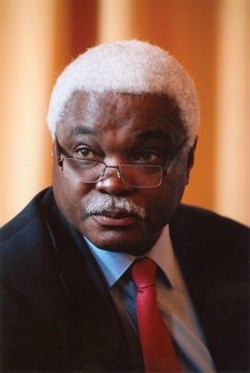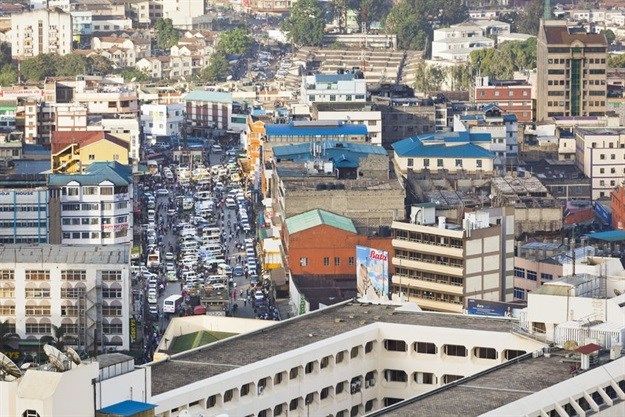
Subscribe & Follow
#AfricaMonth
In the news
How to develop successful African cities that leave no-one behind

Mbassi is the secretary general of the chapter of the United Cities and Local Governments (UCLG-A) organisation. The regional body aims to provide a representative voice for local governments across the continent, promoting decentralisation in Africa, and African local governments as a distinct and autonomous sphere of government. With the goal of improving democracy and public governance in Africa, the UCLG-A supports the installation and empowerment of sub-national governments so that they are better able to deliver on their mandates, and are enabled to contribute on a national level on matters that affect day-to-day living conditions of African people.
"Our wish is that all cities and all sub-national governments be part of the national association irrespective of their political affiliation because it is through the unity of their voices that sub-national governments can bring about needed change in the governance of African countries that have been overcentralised for 70 years," explained Mbassi. Beyond the national level, Mbassi believes collaboration is needed at the global level "so that the viewpoint of those public authorities that are closest to citizens is duly taken into account when defining development and cooperation agendas".

Africa's urbanisation challenge
With the fastest rate of urbanisation in the world, African cities are becoming home to the majority of its population, explained Mbassi. "The challenge ahead is huge since, in the next 30 years, the urban population of Africa is expected to rise from 470-million people today to over 1.2-billion by 2050 - the equivalent to today's population of China, three times the population of the US, and four times the population of the EU."
He notes that the success of the continent will, therefore, depend on how these cities are managed and governed, their inclusivity, the incorporation of African values and culture, the creation of economic opportunities and employment, and the extent to which collaboration is embraced across nations.
Mbassi said that while Africa has a reputation for having good social capital embedded in values of solidarity, regardless of living conditions, the scale of transformation required has placed immense strain on urban governance as "cities are characterised by a high level of informality, low-wage employment, low productivity, and poor infrastructure and services". "These conditions," said Mbassi, "have prevented cities in sub-Saharan Africa in particular from serving as engines of growth."
Mbassi believes that successful cities are the result of national governments accepting local branches as distinct, autonomous spheres that are complementary to their efforts, and as a necessary component for the success of their national urban policies.

He went on to suggest ways in which to develop successful African cities in which no-one is left behind, as is recommended by the New Agenda on Sustainable Development.
- Accept that cities are here to stay. "I love the beauty of our villages, I hate the severity of life that the African people suffer there most of the time - not surprisingly they move into cities and vote with their feet," said Mbassi. With the continent's urban population set to surpass its rural population by 2037, African cities are an unavoidable reality, he explained.
- Implement appropriate enabling policies. African cities require significant infrastructural development - appropriate enabling policies at local and national levels will encourage organised responses that support economic transformation and improved social economic stability. With an estimated $60bn of investment required per annum for urban development in sub-Saharan Africa, Mbassi sees an opportunity here for the real estate sector.
- Make urban African investment appealing to the real estate sector. "Despite the promising prospects, there is still hesitation on the part of many professionals in the real estate industry to take the reins in Africa. I am here also to understand why and to know which steps African public authorities, in particular local government, must take in order to ensure urban African investment becomes appealing for the real estate community."
- Investors should target the intermediary cities. With a third of the urban population in Africa housed in intermediary cities, the real estate community should broaden their scope beyond the big cities and upper and middle classes, explained Mbassi.
- Public-private collaboration in administrative capacity building. "No market can flourish without the intervention of public authorities that are capable of urbanising," said Mbassi, and the private sector, as an investor, needs to contribute to capacity building at local and national administrative levels to ensure good knowledge of the components of, and to understand the functioning of the real estate sector. Mbassi concluded his keynote presentation by noting that the UCLG-A is open to considering partnerships to support this effort.
For more information on the African Real Estate & Infrastructure Summit 2016, go to www.african-real-estate-summit.com. The conference is currently underway at the Cape Town Convention Centre.











